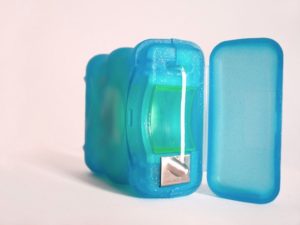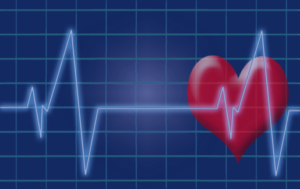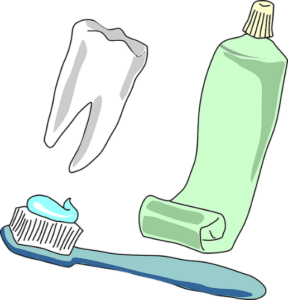Tag: Dentist 60172
Dentist Roselle, IL | 3 Steps to a Healthy Smile
Dentist 60172
 Did you know that tooth decay is the single largest cause of school absences? The longer decay goes untreated, the worse it gets. Not only can this mean costlier expenses for you, but it also jeopardizes your child’s oral health and education. You can help your child have a healthy, happy smile by taking a few steps to defend against tooth decay. Here are three steps you can take at home.
Did you know that tooth decay is the single largest cause of school absences? The longer decay goes untreated, the worse it gets. Not only can this mean costlier expenses for you, but it also jeopardizes your child’s oral health and education. You can help your child have a healthy, happy smile by taking a few steps to defend against tooth decay. Here are three steps you can take at home.
Reduce Excessive Sugar
Sugary foods feed the bacteria that cause tooth decay. Limit your child’s sugary intake by keeping candy, soft drinks, juices, and other sweets to a minimum. If your child does indulge in a sugary snack or treat, make sure they brush their teeth afterwards.
Follow a Consistent Brushing Routine
One of the best steps you can take for your child is to help them establish a daily brushing routine. They should brush for at least two minutes both morning and night. Try brushing at the same times each day so that it becomes a habit. We also strongly recommend that parents monitor their children to make sure they are brushing correctly and safely. It’s important that children avoid swallowing toothpaste or mouthwash.
Strengthen Teeth with Dairy Products
Dairy products are excellent sources of calcium, particularly cheese, yogurt, and milk. Calcium helps to build strong bones and teeth. Increasing the amount of calcium in your child’s diet can help strengthen tooth enamel, one of the natural defenses against decay. If your child is lactose intolerant or cannot consume other dairy products, we suggest you talk to our team for additional solutions.
Healthy teeth start at home. Implement the three simple steps above with your child at home to ensure they have a happy, healthy smile. The single most important step you can take for your child is to bring them in to see our team. Regular oral health examinations for your child are essential to ensure that their teeth are healthy and growing properly.
Contact our team to schedule your child’s next examination today.
Westlake Dental Care of Roselle
1260 W Lake St, Roselle, IL
60172 (630) 980-6762
Dentist in Roselle, IL | One Tool for Better Gum Health
Dentist 60172
 Loose teeth, bad breath, and painful, bloody gums – these are among the signs and symptoms of periodontal, or gum, disease. Unfortunately, periodontal disease can also begin without any obvious symptoms. If left undiagnosed or untreated, you could be at risk for irreparable damage to your teeth and gums. The good news is that periodontal disease is preventable. In fact, one of the most effective tools for preventing the disease only takes a minute of your time each day.
Loose teeth, bad breath, and painful, bloody gums – these are among the signs and symptoms of periodontal, or gum, disease. Unfortunately, periodontal disease can also begin without any obvious symptoms. If left undiagnosed or untreated, you could be at risk for irreparable damage to your teeth and gums. The good news is that periodontal disease is preventable. In fact, one of the most effective tools for preventing the disease only takes a minute of your time each day.
Floss to the Rescue
Dental floss is an effective and easy to use tool that can be among your best defenses for preventing periodontal disease. Periodontal disease is caused by a buildup of plaque and bacteria. Even if your daily oral hygiene routine already includes a thorough brushing that lasts for two minutes, at least twice each day, you should be flossing daily as well. Dental floss is highly effective at cleaning areas where your toothbrush cannot reach. Small gaps and tight spaces between teeth catch food debris and sugars and acids from drinks all day long. Flossing helps to clean out these tough to reach spaces.
Facts Behind Flossing
According to a survey referenced by the American Dental Association, only 40% of Americans floss each day. The same study showed a clear link between regular intra-oral care and better oral health. Unfortunately, many people also lie about how frequently they clean between their teeth. A study from the American Academy of Periodontology found that 27% of adults lie to their dentist about their flossing habits.
Tips for Flossing Correctly
It can be confusing to figure out the best way to use dental floss. Try cutting off about 18 inches of floss and wrapping most of it carefully around your middle finger. Use roughly one inch to clean between each pair of teeth. Using your thumb and index finger, carefully slide the floss between your teeth. Floss to your gumline, but be gentle. Avoid cutting your gums. Work your way through your 18 inches of floss by using a new, clean section between each pair of adjacent teeth.
It only takes about a minute to floss your teeth each day, but these minutes contribute to a lifetime of optimal oral health. Floss is among the most effective tools at your disposal to keep your gums clean and healthy. Get into the habit of flossing your teeth regularly – your gums will thank you.
For more information about gum health, or to schedule a visit to our office, please contact our team.
1260 W Lake St.
Roselle, IL 60172
(630) 980-6762
Dentist in Roselle, IL | Oral Cancer Risk Factors
60172 Dentist
 During a comprehensive dental examination, our team will look for signs of oral cancer. Early detection is key with oral cancer. If caught early, most forms of oral cancer are treatable. Our dental team is trained and educated to identify oral cancer.
During a comprehensive dental examination, our team will look for signs of oral cancer. Early detection is key with oral cancer. If caught early, most forms of oral cancer are treatable. Our dental team is trained and educated to identify oral cancer.
Everyone is susceptible to the disease, but some groups of people are at a higher risk level than others. Here are the top seven risk factors for oral cancer.
Age
Are you in your mid 40s? Your risk of developing oral cancer increases with age. A noticeable increase is evident in people in their 40s and older. According to the Cancer Treatment Centers of America, the majority of diagnosed cases occur around the age of 62, but the average age is declining. The recent increase in Human Papillomavirus (HPV) related cases is causing more people to be diagnosed for oral cancers between the ages of 52 and 56. As the average age for oral cancer cases decreases, it is vital that you receive regular oral cancer screenings at any age.
Gender
Men are twice as likely to develop oral cancer compared to women. Part of this difference may be related to regular intake of alcohol and tobacco. According to the American Cancer Society, the gender difference is decreasing since more women are drinking and using tobacco today than in previous generations. There has also been a trend in recent years of younger men being diagnosed with HPV-related oral cancer. Both men and women should schedule regular oral health examinations to detect oral cancer early.
Tobacco
Smoking or chewing tobacco can greatly increase your risk of developing oral cancer. Tobacco can lead to cancer of the mouth or throat. Additionally, oral tobacco products cause cancers associated with the cheeks, gums, and inner surface of the lips. Development of these cancers depend on the duration and frequency of tobacco use. Non-smokers are not immune to oral cancer, so be sure to schedule an appointment with our team for an examination.
Alcohol
Among those that are diagnosed with oral cancer, about 70% of people are characterized as heavy drinkers. According to the Centers for Disease Control and Prevention (CDC), heavy drinking is defined as having an average of two or more drinks per day for men, and one or more drinks per day for women. People who drink heavily can be more than twice as likely to develop oral cancers than people who do not drink. Oral cancer can still occur in people who have never had an alcoholic drink. Contact our team to schedule an examination.
Human Papillomavirus (HPV)
This sexually transmitted disease is associated with at least 10,000 cases of oral cancer diagnosed each year in the United States. People who have HPV-related oral cancers tend to be younger and are unlikely to smoke or drink. Typically, those diagnosed with HPV-related oral cancers are at a much lower risk of death or reoccurrence. We suggest a proactive approach by maintaining regular visits to our dental office.
Sunlight
People who work outside or with prolonged exposure to sunlight have a higher risk of developing lip cancer. It is vital to use UV protection when under the sun. Many lip balms offer UV protection. If you work outdoors frequently, schedule an additional examination with our team.
Diet
Poor nutrition can increase your risk for developing oral cancer. According to the American Dental Association, reports have shown that a link exists between diets low in fruits and vegetables and a higher risk for oral cancers. However, oral cancer can develop in healthy individuals. No matter your diet, schedule a visit with our team for a comprehensive oral examination.
Oral cancer does not discriminate. While these seven factors have been tied to an increased risk of oral cancer, that does not diminish the importance of regular oral examinations for everyone regardless of their age, gender, or other factors. Regular dental examinations make it possible for our team to detect oral cancer early.
Contact our dentist to schedule a comprehensive oral examination.
1260 W Lake St
Roselle, IL 60172
(630) 980-6762
Roselle Dentist | Health Link: Oral Hygiene and Heart Disease
60172
 The human body is a network of interconnected systems and organs. Unfortunately, issues that impact one particular area of your body can also effect the health and function of other areas. Recently, studies have highlighted evidence for links between gum disease and heart disease.
The human body is a network of interconnected systems and organs. Unfortunately, issues that impact one particular area of your body can also effect the health and function of other areas. Recently, studies have highlighted evidence for links between gum disease and heart disease.
While the exact nature of the connection is still being researched, heart disease is almost twice as likely to occur in people who have gum disease. Nearly half of all Americans have undiagnosed gum disease. In the United States, heart disease is the leading cause of death, making it pertinent that you maintain a healthy heart. The first key to doing so might lie in keeping your gums healthy.
While gum disease may be a contributing factor to heart disease, it is not the only cause. It is essential that you maintain regular visits to your primary care physician as well to measure your overall health. Other factors and lifestyle choices can impact your heart health.
Diet and exercise. Maintain an active lifestyle with activities you enjoy, such as taking walks, riding bikes, playing sports, or doing yoga. Avoid foods high in starches and sugars, including carbonated soft drinks, as they can also damage your teeth.
Don’t smoke. Whether you’re smoking or vaping, nicotine has a detrimental effect on your cardiovascular system and can damage teeth, gums, and lungs. Recent studies have connected vaping to a rapid loss in healthy cells that line the top layer of your mouth. These cells play an essential role in keeping your mouth healthy.
Brush your teeth. The most basic part of oral hygiene is also the most effective. Make sure you brush and floss at least twice a day.
By keeping a balanced, exercising regularly, and taking care of your teeth, you’re taking a holistic approach to your well-being and minimizing your risk of developing heart disease.
As with other diseases, preventing gum disease alone will not completely remove the risk of developing heart disease. However, you can take a proactive approach to keeping your body healthy, starting with your oral health.
To schedule a cleaning and examination, please contact our office.
1260 W Lake St
Roselle, IL 60172
(630) 980-6762
Cosmetic Dentist in Roselle IL | 6 Harmful Habits That Affect Your Teeth
Dentist in 60172
 Nearly everyone has at least one habit that they wish they could break. Did you know that some of them can affect your oral health? Here are a few common habits and tips for how to break them.
Nearly everyone has at least one habit that they wish they could break. Did you know that some of them can affect your oral health? Here are a few common habits and tips for how to break them.
- Nail Biting
Why it’s harmful: Your dental health may suffer from nail biting by possibly chipping your teeth or impacting your tooth. You place pressure on your jaw when you leave it in a protruding position for long periods of time. You could also tear or damage your gums.
The solution: Some patients find it helpful to wear a mouth guard to deter form nail biting. Other ways to reduce nail biting include using therapy techniques, reducing stress, or applying bitter tasting nail polish.
- Brushing Too Hard
Why it’s harmful: It’s best to brush your teeth for two minutes at least twice a day. Make sure to not brush too hard since this can lead to damage to the teeth and gum irritation. When you brush too hard, you risk gum recession and not cleaning your teeth efficiently.
The solution: Instead of brushing hard, use a soft toothbrush and apply a proper pressure. Let your toothbrush bristles touch your gums at a 45 degree angle and reduce the force of your brush on your gums.
- Grinding and Clenching
Why it’s harmful: This can chip or crack your teeth as well as cause muscle tenderness and joint pain. You may also experience a painful sensation when chewing or inability to open your mouth wide.
The solution: Stay aware of your teeth grinding and clenching and use relaxation exercises to keep from doing both. A mouthguard can also help protect you from grinding your teeth while you sleep. This will reduce any tooth pain, or muscle soreness and give you a better sleep. Our dentist can provide recommendations for how to combat teeth grinding.
- Chewing Ice Cubes
Why it’s harmful: Tooth enamel and ice are both crystals. When you push two crystals against each other, it can cause one to break. This may be the ice and sometimes it may be the tooth.
The solution: Try drinking beverages without ice or use a straw instead.
- Constant Snacking
Why it’s harmful: If your diet consists heavily of sugary foods and drinks, you are at a higher risk of forming cavities. The cavity-causing bacteria feast on leftover food and produces acid that attacks the outer shell of your teeth.
The solution: To reduce snacking, eat balanced meals so that you can feel fuller, longer. You should avoid sugary foods when snacking. If you are tempted to eat the occasional sugary snack, just make sure to drink a glass of water after to wash away the leftover food.
- Using Your Teeth as a Tool
Why it’s harmful: Using your teeth as a tool to hold items, open bottles, cut through thread, or other functions can put you at risk for chipped or broken teeth or jaw injuries.
The solution: Your teeth should never be used to hold or open items or to cut things when you don’t have scissors at your disposal. Look for your scissors or find someone that can give you a hand. Your mouth will thank you for it and you’ll be saving yourself from potentially costly and painful dental complications.
Contact our office to schedule your next dental appointment.
Dentist Roselle | 5 Teeth Sensitivity Myths
Dentist in Roselle
 Do you suffer from regular sensitivity? Teeth sensitivity is often misunderstood, but our dental team can help you find relief. We’re here to separate the fact from fiction in sensitivity.
Do you suffer from regular sensitivity? Teeth sensitivity is often misunderstood, but our dental team can help you find relief. We’re here to separate the fact from fiction in sensitivity.
MYTH: People’s teeth are supposed to hurt when they bite into cold or hot foods.
Feelings of sensitivity when eating hot or cold foods should not be a typical experience. If you suffer from hypersensitivity, it can actually be a sign that something is wrong. There are many causes for hypersensitivity including cavities, older dental fillings, worn tooth enamel, gum disease, and exposed tooth roots. Dentin hypersensitivity is a common issue. A visit to our dental office can help you find relief.
MYTH: Desensitizing toothpastes are not effective in reducing teeth sensitivity.
Desensitizing toothpastes include compounds like potassium nitrate or strontium chloride. These ingredients work by preventing pain signals being transmitted between the surface of your tooth and the inside nerves. It may take several applications of the toothpaste until you will feel a noticeable difference. Prescription strength toothpastes are also an option for more severe and prolonged feelings of sensitivity. Ask our dentist to recommend a toothpaste for your needs.
MYTH: You shouldn’t drink coffee or eat ice cream if you have sensitive teeth.
You don’t have to be limited from eating or drinking your favorite foods. It is important to check with our dentist to determine the root cause of your discomfort. Based on your cause, we may recommend a prescribed toothpaste or another treatment. You should always maintain proper oral care to prevent sensitivity.
MYTH: Sensitivity never results in tooth loss.
Sensitivity may in fact be a precursor to tooth loss. Gum recession, which exposes the roots of your teeth, can cause general sensitivity among several teeth at the same time. Prolonged and untreated gum recession can lead to tooth loss. Tooth decay can also cause sensitivity. When left untreated, it may lead to an infection in the gums or jaw and risk spreading to other areas in the head or neck. Early diagnosis and treatment can make a difference in keeping your smile healthy.
MYTH: Sensitivity does not have a cure.
Depending on the cause, there are many ways to treat teeth sensitivity. Proper oral hygiene is the best way to prevent any sensitive tooth pain. If you experience sensitivity, schedule a comprehensive dental examination today.
We look forward to seeing you. Contact our team to schedule your next visit.
Address: 1260 W Lake St, Roselle IL 60172
Phone: (630) 980-676
Dentist Roselle | 5 Interesting Dental Facts
Cosmetic Dentist in Roselle, IL
 Did you know your oral health can impact your overall health? We’ve compiled a list of 5 tidbits about your teeth and oral health.
Did you know your oral health can impact your overall health? We’ve compiled a list of 5 tidbits about your teeth and oral health.
Say Cheese
Cheese has been found to promote dental health by helping prevent tooth decay. The calcium and phosphorus found in cheese help neutralizes acid in the mouth. Acid can create dental erosion, which can cause decay that may require filling. Cheese creates a protective film around teeth and helps remineralize the enamel.
Keep Smiling
Your smile can make a difference. Studies have found that 50% of people consider a smile the first facial feature they notice. One study found that 88% of us remember people with beautiful smiles whenever we meet new people. This means attractive smiles are key to being more noticeable and remembered.
Toothbrush Time
Don’t forget to replace your toothbrush at least once every three months. You should get a new toothbrush after recovering from any sort of viral infection, flu, or cold. You are more likely to be re-infected if these bacteria implant themselves on the bristles.
You’re Unique
In your lifetime, you only get two sets of teeth— baby teeth and permanent teeth. It is important to take proper care of your permanent teeth. Did you know that no two people have precisely the same set of teeth? Your teeth are as unique as a fingerprint. This is the reason teeth are used by investigators for identification. Your tongue also has a unique print, though it is not commonly recorded.
F.Y.I on Floss
Floss is a lot more useful than you may think. If you skip out on your daily flossing, you can miss cleaning up to 40% of your tooth surfaces. Flossing can also help prevent gum disease by removing plaque near the gum line. Floss has other alternative creative uses. The next time you are looking for a fun holiday project, grab some dental floss and a handful of cereal to string for the tree. Floss works well for repairing a bead necklace too!
Bonus Fact: Health professionals are rated among the most trusted people in the U.S so make sure to call our dentist and make an appointment today!
Roselle Dentist | X-Rays: What You Need to Know When You Visit the Dentist
Dentist in Roselle
 X-rays provide useful visual data for dentists to utilize when treating you. Occasionally, guests to our office ask about the radiation from x-rays and the dangers associated with high-exposure. Rest assured, a dental x-ray is one of the safest medical imaging procedures there is. Here’s what you need to know about getting a dental x-ray.
X-rays provide useful visual data for dentists to utilize when treating you. Occasionally, guests to our office ask about the radiation from x-rays and the dangers associated with high-exposure. Rest assured, a dental x-ray is one of the safest medical imaging procedures there is. Here’s what you need to know about getting a dental x-ray.
The Purpose of Oral X-Rays
X-ray imaging of the mouth can show our dental team damage to your teeth as well as disease. They can also show incoming teeth that could be problematic. X-rays allow our team to prevent problems by addressing them early. Rather than wait for excessive tooth damage to become visible, a simple x-ray procedure can identify it before it becomes painful.
Dangers of X-Ray Radiation
Excessive radiation exposure has been linked to increasing the risk of cancer. However, not all radiation sources are the same. It matters greatly where the radiation is coming from, how much you are exposed to, and for what length of time. X-rays have not been shown to present a significant increase in cancer development.
Comparing X-Ray Radiation
Dental x-rays are among the lowest dose of radiation producing procedures in medical imaging. It would take roughly 1,200 panoramic x-rays of your mouth to equal one CT Scan. Did you know that when you fly in an airplane you are exposed to a small amount of radiation? A panoramic x-ray of your mouth is only half of the radiation you’re exposed to on a 7-hour plane ride. The amount of radiation is even lower for a routine x-ray exam. A routine procedure including 4 intraoral images is about the same dose of radiation from a 1-2 hour plane ride. A dental x-ray provides less than the amount of radiation you are exposed to in the average day from natural radiation.
Safety First
Even though dental x-rays are safe and expose you to a small amount of radiation, our office takes additional measures to keep you safe. First, state laws and regulations set the limit of radiation patients can be exposed to. We never exceed these restrictions. Our experienced team is also trained to use the x-ray equipment. Visitors are provided with a shield or bib that provides additional protection.
What You Can Do
Communication is key. If you are a new patient, please provide us with your medical records so that our team knows about any previous medical imaging you have had. Talk to our dentist about your concerns. Together we’ll work with you to ensure you are treated in a safe environment.
Dental x-rays are a safe and incredibly helpful procedure. They allow our dentist to detect problems and develop solutions specific to your mouth. Dental x-rays provide a significantly lower dose of radiation than other safe medical imaging methods. We strive to create an atmosphere where our guests are comfortable. If you have any concerns, please let us know.
If you have any questions or would like to schedule your next examination, please contact our office.
Dentist Roselle | Providing Relief from Periodontal Disease
Dentist in Roselle
 Over 45% of U.S. adults have moderate to severe periodontal disease. Periodontal disease ranges from a mild inflammation of the gum tissues to periodontitis, a major oral disease that can result in soft tissue and bone damage and even tooth loss. Our experienced dentist is providing periodontal treatments to both new and existing patients who are suffering from any form of periodontal (gum) disease.
Over 45% of U.S. adults have moderate to severe periodontal disease. Periodontal disease ranges from a mild inflammation of the gum tissues to periodontitis, a major oral disease that can result in soft tissue and bone damage and even tooth loss. Our experienced dentist is providing periodontal treatments to both new and existing patients who are suffering from any form of periodontal (gum) disease.
One of the major causes of gum disease is practicing poor oral hygiene habits. Daily brushing and flossing and regular professional exams and cleanings are essential to maintaining optimal oral health. When these practices are not followed, plaque can form on the teeth and along the gumline. If this plaque is not properly removed, it may harden over time and become tartar. Once that occurs, only a dental professional can remove the tartar from teeth.
If gum disease is not treated in a timely manner, tartar may continue to build. When this occurs, the gum disease may advance. Gums redden, swell, and become prone to bleeding from normal activities, such as brushing or eating. At this point, professional periodontal treatment is needed to prevent the disease from advancing further.
When periodontal disease is not treated in a timely manner, it may become periodontitis. Periodontitis is the most advanced form of periodontal disease. With periodontitis, gums begin to pull away from the teeth, creating small “pockets” along the gumline. These spaces are highly difficult to clean without professional intervention and can lead to rapid worsening in overall oral health. Without prompt and thorough treatment, bone, gums, and soft tissues may be destroyed by periodontitis. One of the leading causes of tooth loss in adults is periodontal disease.
Some of the most common factors that contribute to periodontal disease developing include poor oral hygiene habits, diabetes, smoking, and female hormonal changes. Some medications can cause gum tissue to develop abnormal tissues, which can increase difficulty in proper cleaning of the teeth. People who are receiving treatment for AIDS are also at increased risk of developing periodontal disease.
Our doctor has the training and experience to diagnose and treat every stage of periodontal disease. If you have symptoms of periodontal disease, contact our office to schedule a consultation. Some symptoms include: chronic halitosis (bad breath), sensitive teeth, red or swollen gums, sensitive or bleeding gums, and difficulty or pain with chewing. Our dentist provides excellent periodontal care for our patients, and welcomes new patient consultations. For more information or to schedule an appointment, contact our office.

